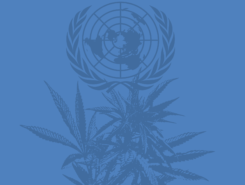Posted on 27 May 2020
From calls for blanket bans in wildlife trade to the need for a new global agreement that focuses on wildlife crime, COVID-19 has shown the shortcomings of current efforts to curb the illicit wildlife trade.
The illegal wildlife trade has been brought into sharp focus in recent months, given that it may have played a role in the emergence of COVID-19. Zoonotic diseases have been with us for centuries, and some of the animal species being targeted in the illicit wildlife trade have been conclusively found to host pathogens that result in diseases include HIV-AIDS, Ebola and SARS. Why has more not been done previously to tackle these threats? To answer this question, let us consider a few of the current infection-eradicating suggestions.
A call to ban all trade in wildlife is the most all-encompassing demand currently being made.
International trade in wildlife is largely regulated under the Convention on International Trade in Endangered Species of Wild Fauna and Flora (CITES) – we say ‘largely’ because the convention only applies to species listed in one of its three appendices.
Thousands of species are not listed; and not all the world’s nations have agreed to be bound by CITES provisions. (It currently has 183 parties, where the UN Convention against Transnational Organized Crime [UNTOC], for instance, has 190.)
CITES requires parties to penalize trade that violates its provisions. It does not, however, require them to criminalize such behaviour, and in some countries, failure to comply will result in only an administrative penalty. Some observers view this as a considerable weakness. To be fair, CITES is a trade- and conservation-related agreement. It was not drafted to respond to or combat crime – especially serious or organized crime.
It should also be noted that CITES applies solely to export, re-export, import and introduction from the sea. It does not regulate domestic harvesting, use or consumption of fauna and flora. CITES Conferences of the Parties (CoPs) have, over time, adopted resolutions and decisions to guide domestic matters, but it is purely the text of the convention that is legally binding upon states. And that text was drafted very much with sustainable use in mind.
Prohibitions typically apply only when trade threatens a species with extinction. To radically amend the CITES convention text so as to encompass all forms of wildlife or fauna (or a considerably larger number of species than at present), and prohibit all trade in them (including domestic trade), would require an extraordinary meeting of the CITES CoP.
The likelihood that the parties would adopt such a proposal, even in the light of COVID-19, seems extremely remote. And even were it to be adopted, each party would subsequently have to deposit an instrument of acceptance. (The best-known previous amendment to the convention – the Gaborone Amendment, which led to the European Union being recognized as a party in and of itself – took 33 years to come into effect.)
For the above reasons, and several others, an outright ban on trade in wildlife will not be achieved using CITES as a legal basis. From the prohibitionist’s perspective, CITES is awash with loopholes and weaknesses, because preventing trade was never its primary goal.
An alternative might be to lobby individual countries to enact national legislation banning specific forms of wildlife trade. What is crucial to acknowledge is that, in many countries, the meat of ‘wildlife’ is an essential part of people’s diet and a primary source of protein. This is often the case for some rural communities, many of whom already live on or below the poverty line.
Many of the world’s worst experiences with zoonotic-based epidemics and pandemics have tended to originate in particular countries or regions. This politically sensitive but inescapable fact means that adopting a global approach may be both illogical and inappropriate. This brings us to calls for banning ‘wet markets’.
A wet market is one that sells fresh or perishable produce. Items on sale can differ greatly in how they are processed, if at all, before reaching the customer. Although what is displayed on the stalls each Sunday in a rural French village might differ markedly from that on sale in a town in Cambodia or a village in the Andes, each is a wet market.
A global ban on wet markets would seem unmanageable and unnecessary, and such a proposal is also unlikely to receive the support of either politicians or the public. This will be especially true where low-income farmers and growers rely upon such markets as their shopfront and main source of income. Less radical might be to outlaw the sale of live animals at such markets.
What is undoubtedly needed is increased regulation of such markets, and the rigid enforcement of the health (both human and animal), hygiene, food production and quarantine regulations. In some contexts, this calls for the enactment of more extensive regulations and increased penalization of offenders.
Special attention must be paid to prevent produce from illicit, illegal or questionable origin, especially live animals, from entering such markets. Unfortunately, past experience has shown that heightened focus on market enforcement tends to drop off over time, or is circumvented by unscrupulous traders smuggling their products to consumers or bypassing controls through bribery and corruption.
Outright or sweeping prohibitions, history has taught us, will almost inevitably lead to black and underground markets or other forms of clandestine trade. In 1993, China banned the use of tiger and rhinoceros’ ingredients in traditional medicines. Despite the ban, some demand has continued and is supplied through poaching and the illegal trade, including trade in violation of CITES.
Soon after the COVID-19 outbreak, China introduced stricter measures around laws governing wildlife products. While many welcomed these, others questioned whether they went far enough or would prove sufficiently long term. In any case, no single country’s actions will prevent further outbreaks.
If we accept that outright bans may not be the full answer to preventing future pandemics, and will not eradicate illicit or illegal consumption, then we must look for other solutions. Education, demand reduction, alternative livelihoods and market regulation will all have important roles to play. However, if illegal trade in fauna plays a part in facilitating the emergence of zoonotic-based disease, then one essential response must surely involve criminal-justice systems.
In early 2019, the Global Initiative published a blog in response to the suggestion that fresh thinking is needed in the world’s response to illegal trade in fauna and flora. The suggestion came, significantly, from John Scanlon, an ex-Secretary-General of CITES. Scanlon observed that CITES is not a natural forum for the law-enforcement or criminal-justice communities, noting, as this blog has, that CITES is not a crime-related convention.
Scanlon proposed that the international community move to criminalizing illegal harvesting and trade in wildlife, recognizing that trafficking in fauna and flora appeared to be increasingly attractive to organized-crime groups and networks, and that few were being brought to justice. Serious levels of corruption and money laundering were also much more prevalent than had previously been appreciated.
A wildlife-crime-related protocol to UNTOC had been spoken of in the past, but had not attracted much enthusiasm. However, that support may now be building, especially as a result of the coronavirus outbreak.
Wildlife crime and trafficking warrant a considerably more coordinated and collaborative response from the law-enforcement and criminal-justice communities. Historically, there has been a lack of appreciation among those communities for the involvement of organized-crime groups, the vast criminal profits being amassed, the levels of violence and corruption employed on occasions or the links to other forms of organized criminality.
Perhaps a fourth UNTOC protocol is now needed – urgently needed. But not one restricted to wildlife or the environment. Instead, one devoted to illicit trade and that acknowledges how very adversely trafficking could impact human health.
COVID-19 has perhaps shown that the rallying calls of today should not be ‘save the planet’ or ‘save the tiger’ but, rather, ‘save the human race’.



